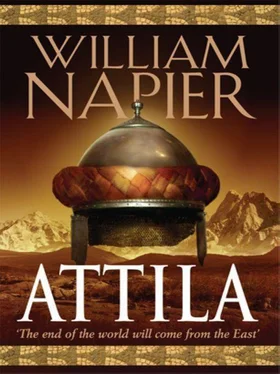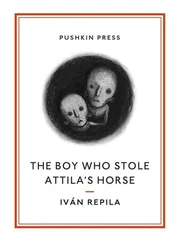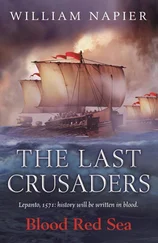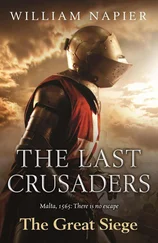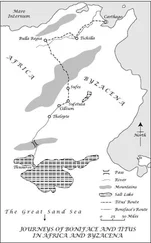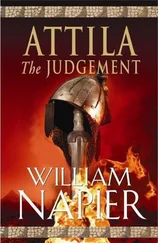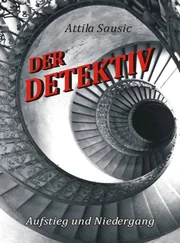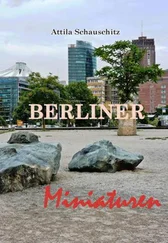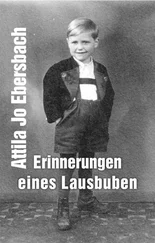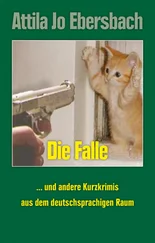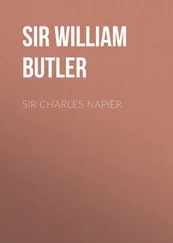William Napier - Attila
Здесь есть возможность читать онлайн «William Napier - Attila» весь текст электронной книги совершенно бесплатно (целиком полную версию без сокращений). В некоторых случаях можно слушать аудио, скачать через торрент в формате fb2 и присутствует краткое содержание. Жанр: Исторические приключения, на английском языке. Описание произведения, (предисловие) а так же отзывы посетителей доступны на портале библиотеки ЛибКат.
- Название:Attila
- Автор:
- Жанр:
- Год:неизвестен
- ISBN:нет данных
- Рейтинг книги:5 / 5. Голосов: 1
-
Избранное:Добавить в избранное
- Отзывы:
-
Ваша оценка:
- 100
- 1
- 2
- 3
- 4
- 5
Attila: краткое содержание, описание и аннотация
Предлагаем к чтению аннотацию, описание, краткое содержание или предисловие (зависит от того, что написал сам автор книги «Attila»). Если вы не нашли необходимую информацию о книге — напишите в комментариях, мы постараемся отыскать её.
Attila — читать онлайн бесплатно полную книгу (весь текст) целиком
Ниже представлен текст книги, разбитый по страницам. Система сохранения места последней прочитанной страницы, позволяет с удобством читать онлайн бесплатно книгу «Attila», без необходимости каждый раз заново искать на чём Вы остановились. Поставьте закладку, и сможете в любой момент перейти на страницу, на которой закончили чтение.
Интервал:
Закладка:
The five – Lucius and Gamaliel, Aetius, Cadoc and Orestes – were escorted from the camp by spearmen. They stopped and looked back once. Their eyes met the eyes of the Hun prince, and everything was said in that wordless exchange. And then they were gone.
The prince should have been put to death. The whole tribe knew it, and yet the whole tribe knew why he was not. They had seen the way their king had looked on him. They had seen a bitter, remorseful affection, even love, in the harsh king’s eyes, which they had never seen before. And they knew that Ruga would never give the order for the prince to be put to death.
Later that day Attila was given a horse to ride and provisions for seven days. He was held down by two strong men while one of the priests leant over him with a bronze knife, and cut three deep slashes in his forehead. The boy gritted his teeth and strained against the men’s grip, but he made no sound.
Then he was helped up, trembling, onto the horse. The priest washed his hands clean of the blood-guilt in a bowl of water. He sprinkled some of the water in the direction of the mounted boy, and proclaimed the sentence before all the assembled tribe.
‘For thirty summers and thirty winters you will ride out alone, wherever you choose. But you will not come into the country of the Black Huns, neither into the country of the White Huns. For they are your People, whom you have betrayed. You will ride alone and none shall own you. If you try to return into the country of your People, whom you have betrayed, every man’s hand shall be against you, and every man’s sword arm shall be raised upon you, and every woman’s and every child’s cry shall betray your presence. To mark your exile, you have been cut upon the forehead with the tripartite mark of the traitor. Now ride forth, with none for company but your own sin-stained soul.’
And the boy rode out into exile.
None was permitted to look out after him, or even speak of him again. For the People, their prince had ceased to exist.
Yet speak of him they did. At the wooden watertrough later that day, the women said among themselves, ‘He will return.’ One old woman looked out across the steppes to the east, and crinkled her eyes, and saw in her mind an image of that strange, fearless boy riding away across the endless grasslands, the hooves of his horse stirring up the dust of the plains as he rode. She nodded and said again, ‘He will return.’
After riding all morning eastwards, the broken-hearted exile came to the grave-mound of his father. And there on the grave-mound sat Little Bird, cross-legged, rocking back and forth, his top-knot swaying comically as he conversed with his only friend, the wind.
The boy sat his horse and said nothing.
It was death for any of the tribe so much as to look at the cursed exile, let alone speak to him. But Little Bird was different and under the protection of the gods. He spoke to Nameless-Under-a-Curse as blithely as he would speak to anyone.
‘Give directions to Little Bird,’ he sang. ‘Give directions to a seedhead of feathergrass on the wind. The result is much the same.’
Little Bird talked always as if about himself, but really he talked about the People. He talked of tragedy with a laugh, and he spoke mournfully of the most ludicrous and trivial things. He rode into camp facing backwards on his horse, he dressed as a woman, he danced and clapped his hands at children’s funerals. He said that it was all one: that the gods bled when mankind bled, but they laughed when they bled, too.
Now he seemed to think the exile of Attila was amusing in the extreme. He joyfully sang one of his little songs.
‘Under the earth I go
On an oakleaf I stand
I ride on a filly that never was foaled
And I hold the dead in my hand.’
The boy heeled his horse and began to walk wearily on.
‘One day, when you were a baby, baby piglet… ’ Little Bird called after him.
Attila hesitated, sighed, then drew in his horse. ‘What?’
Little Bird grinned tormentingly. ‘One day, when you were a boy – do you not remember? You and your brother, Bleda with the Brain like a Grass-Grain, went out to play in the woods. We were camped near the marshes of the Dnieper in those days. Do you not recall, little father?’
Attila shook his head.
‘And in the woods, you met an old woman,’ went on Little Bird liltingly, ‘you met an old woman with a wart on the end of her nose, a wart the size of a molehill. But that, I admit, is by the by. And maybe I’m making it up altogether. Maybe I’m making it all up altogether.’
The boy waited patiently. His horse shook its head free of flies and waited likewise.
‘Anyway. The woman smiled her ghastly smile – and a bat flew out of her mouth as she smiled! And she creaked and croaked and pointed her pointy old finger, and she told you and your arse-brained brother that the first of you to run back and hug your mother – your mother was still alive in those far-off days, little father, and very beautiful and lovesome she was, too-’
The boy did not flinch.
‘-that the first of you to run and hug your mummy would be king of the world. Now, if some droopy nosed old beldame, and with droopier milk-sacs by far, I fear – if such a noisome old dame, as I say, were one day to accost me in a bat-haunted forest and tell me to run and hug my mother, I might think twice before doing her peculiar bidding. But not you, O innocent, boyish little chap that you were in those days, nor your galumphing, arse-brained brother. So you both set off running, in your quest to become kings of the world. And your galumphing, arse-brained brother gets to your mother first, where she is sitting so beautiful on a rug in the sunshine and carding sheep’s wool, or whatever it is that women do all day. And much startled was she to get a hug all out of the blue that way from Bleda her arse-brained son. But you, O noble princeling, were way behind, for you had fallen flat on your pug. Or perhaps your not so arse-brained-as-he-looks elder brother had tripped you up as you ran? For I never said that the world was a just and joyful place, little father. At all events – in falling – in falling, you seized two great handfuls of dust. And you stood and shouted to your brother that you had seized your mother earth. He looked back, did Prince Bone-Headed Bleda the Dim, and he saw your little joke, and oh! how he did scowl!’
Little Bird paused and regarded the boy on the horse with eyes which twinkled with strange, otherworldly amusement. ‘Well,’ he said at last. ‘What do you make of that tale, little father?’
Attila’s eyes lowered slowly towards the ground as he heard the madman’s words. Then he slowly reined his horse around, and began to ride on.
‘O King of the World!’ Little Bird cried, throwing a single blade of feathergrass like a spear futilely after him. ‘O Princeling! O Little Father of Nothing!’
As to the five, they took their separate ways.
Orestes vanished one night, soon after they had left the camp of the Huns, long before they crossed back over the Kharvad Mountains, and they never saw or heard from him again.
After fond farewells, Gamaliel went south towards Byzantium, where he said he had pressing business.
Aetius they said farewell to at the gates of a Danube fort, and he was taken from thence back to Rome.
Lucius and Cadoc, father and son, made the long, long journey home to Britain.
As to their home-coming, and the joy that was there in the eyes of Seirian, wife and mother, and in the upturned face of curly-haired Ailsa – it would take a pen greater than mine to do that scene justice. But I do not suppose that there has been such pure happiness often in the history of mankind.
There was only one more encounter before the exiled prince left the land of the Huns for ever.
Читать дальшеИнтервал:
Закладка:
Похожие книги на «Attila»
Представляем Вашему вниманию похожие книги на «Attila» списком для выбора. Мы отобрали схожую по названию и смыслу литературу в надежде предоставить читателям больше вариантов отыскать новые, интересные, ещё непрочитанные произведения.
Обсуждение, отзывы о книге «Attila» и просто собственные мнения читателей. Оставьте ваши комментарии, напишите, что Вы думаете о произведении, его смысле или главных героях. Укажите что конкретно понравилось, а что нет, и почему Вы так считаете.
